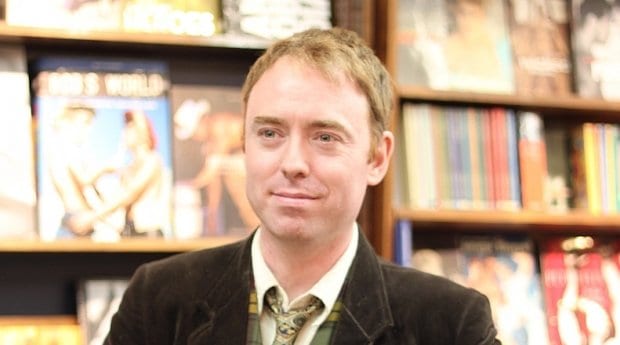Were the 1990s a golden age of queer books? Corporate America discovered that gay men and lesbians were coming out in great numbers, and authors like Kathy Acker and Dennis Cooper got mainstream attention and book deals. In March of 1995, Olympic diver Greg Louganis scored the first queer number-one New York Times bestseller in decades with Breaking the Surface.
But the rise of the internet and the zeal to put all content online for free has seen the decline of traditional bookselling in the last 15 years. Many publishers have gone bankrupt, and even a behemoth like Chapters-Indigo is struggling. People assume it’s simply a technological shift, but e-books have plateaued at a mere 15 percent of the Canadian book market, while we all struggle through a dismal economy. “Who has time to read anymore?” I’ve been asked by more than one person juggling two or more jobs. This should alarm anyone, not just booksellers.
“Publishing is not dead,” Jared Bland, Globe and Mail books editor, told Canadian Business magazine last year, “but maybe it’s dead as an extreme growth industry. You have to accept moderate success.” That scares corporate giants like Penguin Random House, but it’s a state where most queer authors and their publishers have always existed. We thrive in the margins.
Xtra recently profiled Vancouver’s Arsenal Pulp Press, a successful small publisher whose commitment to queer authors has been excellent, launching new work from Vivek Shraya and Shawn Syms this month alone. Indie publishers like Insomniac Press and Cormorant Books provide a home to queer Canadian authors like Anthony Bidulka and Zoe Whittall. For queer authors and readers, smaller is bigger.
And what about Amazon? As the manager of a beautiful little bookshop, I’m obviously biased against a monopolistic business model based on bullying publishers, avoiding taxes and creating abusive conditions for their workers. In 10 years’ time, there may be no retail other than Amazon, iTunes and Walmart. This is troubling all around: according to Forbes magazine, traditional retail (which makes up about 20 percent of Canadian workers) employs 47 people for every $10 million it makes, while Amazon employs a mere 14 people.
In April 2009, all the gay and lesbian books on Amazon’s US site were suddenly removed from sale, retagged as “adult.” There was an uproar, with Amazon blaming a “glitch,” but for a couple of days, queer authors lost 65 percent of their market, instantly. Too big to fail?
Given all that, it’s hard to trust Amazon as they now set out to dominate the publishing, as well as selling, of books. Their CreateSpace program prints books by first-time authors, while they begin to poach authors like Christopher Rice away from the majors. Some are thrilled by this, others horrified. Many indie bookshops refuse to stock them because while Amazon demands a 53 percent discount to sell Penguin Random House books, they offer indie bookshops only a 20 percent discount on their own. When you’re essentially a monopoly, why play fair?
Whatever happens to the book trade in the next decade, the need for it cannot be replaced by other media. One trans character on a TV show is no replacement for dozens of fascinating memoirs, like those of Janet Mock or Kate Bornstein. Can the HBO series Looking ever fascinate like Larry Kramer’s Faggots? Cate Blanchett is set to star in the lesbian noir thriller The Price of Salt, based on Patricia Highsmith’s novel from the 1950s. TV and movies are still playing catch-up to books. There may never be any Hollywood movie that captures the gay male experience as beautifully as Dancer from the Dance, any queer TV series more funny and engaging than Tales of the City, any blog more insightful and inclusive than Gender Outlaws, nor do we need to wait for them. Our stories are still being told and on the shelves right now.
Scott Dagostino is the manager of Glad Day Bookshop in Toronto.


 Why you can trust Xtra
Why you can trust Xtra


